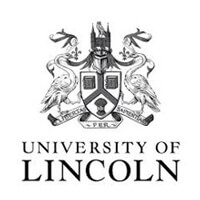fees waived
Pharmacy, MPharm (Hons)
University of Lincoln, United Kingdom
Subject ranking
UK / Guardian 2025 13th
UK / CUG 2024 15th
UK / Times 2025 33rd
Costs
food & rentS$17.2K / year
Entry requirements
Scholarships
Unlimited quantity
Unlimited quantity
Unlimited quantity
Unlimited quantity
Limited quantity
Limited quantity
Information
Code
Code
Intakes
Website (External)
Programmes
Information
Duration
2029
Course summary
The MPharm course at Lincoln combines the science of medicines and disease with the development of patient-facing decision-making skills and professional practice required by modern pharmacists to care for patients. The School of Pharmacy is involved in innovative projects to develop new models of pharmaceutical care. There are opportunities to learn from, and work alongside, our team of academics who aim to ensure that students are prepared both to help shape and develop pharmacy practice. This degree enables you to develop the relevant knowledge and skills to succeed in this exciting profession. The Lincoln MPharm qualification enables graduates, once they have completed an additional pre-registration year and passed a final national registration assessment, to apply for registration as a pharmacist with the General Pharmaceutical Council. Two fully integrated pharmacy modules are taught each year, making a total of eight modules. These follow the life cycle of the patient, initially in a healthy state, and then the same modules are studied from the perspective of disease and ill health. The course is taught within the context of the medical conditions that patients present, and is structured around a typical patient’s life cycle. It is supported by case studies and patient-facing activities, which increase in complexity as the course progresses and the patient ages. Student learning aims to be taught within the context of the common conditions that present at that stage of life, supported by case studies. These fall within several therapeutic learning threads, that will be revisited and develop as the course progresses, and the complexity of care increases. Learning will incorporate important aspects of pharmaceutical care, clinical and professional skills and health promotion integrated with the underlying science of the diseases and of the medicines used. The way students will be assessed on this course will vary for each module. It could include coursework, such as a dissertation or essay, written and practical exams, portfolio development, group work or presentations to name some examples. Throughout this degree, students may receive tuition from professors, senior lecturers, lecturers, researchers, practitioners, visiting experts or technicians, and they may be supported in their learning by other students.Modules
Assessment method
Two fully integrated pharmacy modules are taught each year, making a total of eight modules. These follow the life cycle of the patient, initially in a healthy state, and then the same modules are studied from the perspective of disease and ill health. The course is taught within the context of the medical conditions that patients present, and is structured around a typical patient’s life cycle. It is supported by case studies and patient-facing activities, which increase in complexity as the course progresses and the patient ages. Student learning aims to be taught within the context of the common conditions that present at that stage of life, supported by case studies. These fall within several therapeutic learning threads, that will be revisited and develop as the course progresses, and the complexity of care increases. Learning will incorporate important aspects of pharmaceutical care, clinical and professional skills and health promotion integrated with the underlying science of the diseases and of the medicines used.
A local representative of University of Lincoln in Singapore is available online to assist you with enquiries about this course.

